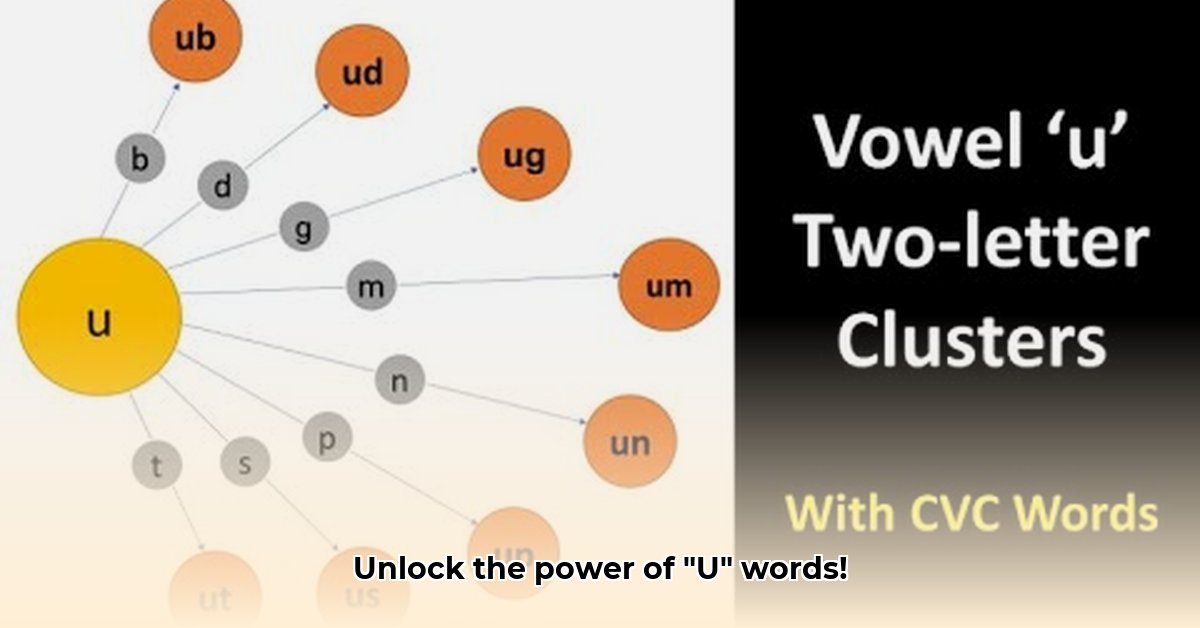
Two-Letter Words Beginning with "U": A Comparative Analysis
The seemingly simple question of how many two-letter words begin with "U" reveals surprising complexity. Different linguistic resources, even those widely used, offer conflicting answers. This discrepancy, however, isn't merely a quirk; it highlights the crucial role of context in defining a "word," particularly within the boundaries of word games like Scrabble versus general English usage. For a more extensive list, check out this helpful resource: two-letter U words. This article provides a definitive comparative analysis, resolving common inconsistencies and illuminating the underlying reasons for the discrepancies.
The Definitive List: A Comparative Overview
The following table presents a comparative analysis of two-letter words starting with "U," using WordHippo and Scrabble Word Finder as benchmark sources. The "Notes" column explains discrepancies and contextual nuances.
| Word | WordHippo | Scrabble Word Finder | Notes |
|---|---|---|---|
| U | Yes | Yes | A universally accepted single-letter word. |
| UH | Yes | Yes | Common interjection expressing hesitation or surprise. |
| UM | Yes | Yes | Similar to "uh," indicating uncertainty or a pause in speech. |
| UN | Yes | Yes | A common prefix meaning "not" or "opposite of" (e.g., unhappy, untie). |
| UP | Yes | Yes | Versatile adverb, preposition, or adjective (e.g., "look up," "go up," "upside down"). |
| UR | Yes | Yes | Less common in modern usage; more frequent in older texts. |
| US | Yes | Yes | Common pronoun and abbreviation for "United States." Often permitted in word games. |
| UA | Yes | No | Primarily an abbreviation, rarely encountered in general usage or common dictionaries. |
| UC | Yes | No | Likely an abbreviation or a specialized term; infrequent in standard usage. |
| UD | Yes | No | Extremely rare; may represent informal usage or a misspelling. |
| UG | Yes | No | Possibly slang or an informal abbreviation; not widely accepted in formal contexts or word games. |
| UK | Yes | No | Abbreviation for "United Kingdom"—highly context-dependent. |
| UL | Yes | No | Likely an abbreviation; needs further investigation for common usage or specialized applications. |
| UT | Yes | No | May be an abbreviation or a term specific to certain fields; rare in general English usage. |
| UV | Yes | No | Primarily an abbreviation; not part of standard vocabulary. |
| UZ | Yes | No | Extremely uncommon; possibly a misspelling or unique to narrow technical contexts. |
| XU | Yes | No | Very rare; potentially an informal usage or technical term requiring specialized knowledge or context. |
| YU | Yes | No | Incredibly rare; requires strong evidence of usage to consider valid. |
Analysis of Discrepancies: Defining "Word"
The discrepancies between WordHippo and Scrabble Word Finder highlight the varied approaches to defining a "word." Scrabble's lexicographical approach prioritizes words found within its official dictionary, emphasizing legitimacy in gameplay. WordHippo, however, adopts a broader approach, often including abbreviations and less common terms.
This difference emphasizes the context-dependent nature of word validation. What constitutes a "word" in everyday conversation might differ from the strict criteria of a word game.
Conclusion: Context is King
Our analysis underscores the critical role of context in determining the validity of two-letter words starting with "U." The discrepancies between different word lists highlight the dynamic nature of language. While a truly "definitive" list might be elusive due to these contextual variations, a clear understanding of the criteria and methodologies used in each resource is crucial for accuracy and informed usage. This understanding has profound implications for lexicographers, game developers, and anyone interested in the intricacies of the English language.